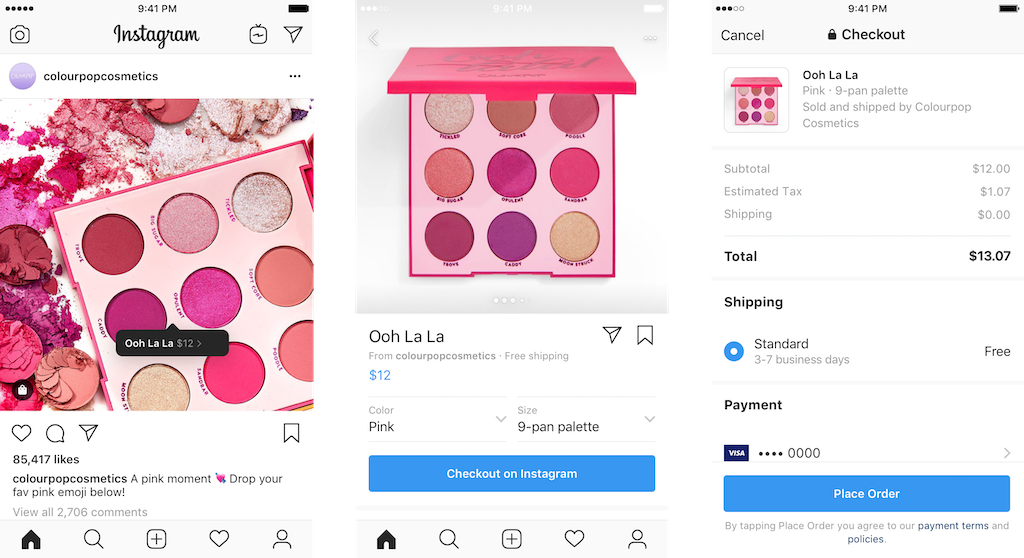4 Factors Shaping the State of Social Media
By Inspira Marketing
October 16, 2019
By Inspira Marketing
October 16, 2019
Given how much time we spend consuming digital media on a daily basis, it has become imperative for brands to stand out from the crowd through online channels. Social media, in particular, has become a big battleground for marketers, with U.S. spending on social advertising expected to exceed $18 billion in 2019 alone.
However, consumer tastes and social media platforms are constantly evolving, which makes it important to ensure that your marketing strategy aligns with current trends and behavior. Here, we take a look at four factors that are shaping the future of social media for both brands and consumers alike.
The State of Facebook
In the last year, the social media giant has been under the microscope for concerns ranging from data privacy and news feed negativity to the proliferation of fake news. Still, though, it’s clear that marketers can’t quit Facebook. eMarketer research indicates that ad revenues are expected to increase 23.5% from 2018, with overall ad expenditures just behind at 20.6%. Is that the right move for brands, though?
Time spent on Facebook is expected to remain flat this year at 40 minutes a day, while Instagram will only inch up from 26 minutes to 27. Though it’s no decrease, digital content consumption on the whole has gone up 14% YoY, meaning that Facebook and friends are losing share. To make matters worse for marketers, the U.S. only accounts for 9.8% of worldwide Facebook users, representing a decrease from 10.3% in 2018. With the U.S. currently responsible for 41% of ad revenues, perhaps it’s time for international brands to consider allocating dollars in other emerging markets.

Vertical Video Continues its Rise
As story features have become more ubiquitous across social media, we’ve begun to see a paradigm shift towards vertical video. It makes sense; that’s how we hold our phones, after all. However, it hasn’t entirely taken hold with marketers who are used to the horizontal TV screen. Expect that to change.
Fifty-eight percent of the adult population watches mobile video, and those viewers account for 81.5% of all digital video viewing. As platforms such as Facebook and Snapchat continue to release new vertical video features, consumers and publishers will embrace it and marketers will follow suit.
Get Ready for Social Shopping
Social platforms are no longer there to just drive interest in your brand; they’re in the business of driving purchase. Last year, Snapchat announced its partnership with Amazon on a visual search tool that allows consumers to snap a photo of a product and identify it on Amazon’s site. This year, Instagram followed suit and made its foray into shopping with Checkout, which allows consumers to buy from select ecommerce brands directly through the app.
Though still in its infancy stages, it’s clear that social shopping will continue to grow as consumers become more and more comfortable making purchases on their mobile devices. Need further proof? Projections estimate that 44.7% of 2019 ecommerce sales in the U.S. will happen on mobile devices, accounting for over $270 billion.

Goodbye Mega-Influencers, Hello Nano-Influencers?
Thanks to a combination of concerns around fake followers, non-disclosure of marketing efforts, and the fact that some celebrities will shill any product – whether they like it or not – for a quick profit, there’s been an increased interest in both micro-influencers (10-50K followers) and nano-influencers (1-10K). According to a study from Accuracast, marketers are likely to receive the same amount of engagement from 10 micro-influencers with a following of 50K as they would with one mega-influencer with 500K followers.
The result? Brands are seeking to work with influencers who actually love their products and have smaller, but more highly engaged audiences. Though the prospect of managing a campaign with a high volume of micro-influencers can be daunting, the influx of vendors and programs that aid in managing influencer programming has helped mitigate some of those concerns.
Is your brand looking to connect with consumers both in person and on social media? Contact us today to learn how our suite of experiential-led services can help you build brand awareness and earn lifelong loyalists.
Sources: eMarketer Social Trends for 2019, Statista Social Media Advertising in the U.S. from 2012 to 2019